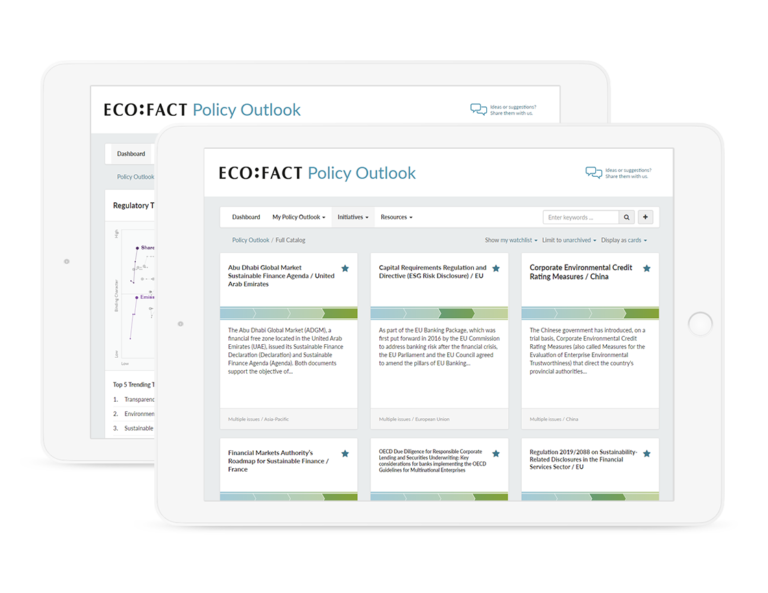Time to move beyond reputational risk management
As an environmental and social (E&S) risk expert working at a financial institution (FI) – be it a bank, a (re-)insurer or an asset manager/owner – you will probably have made steady progress in developing your E&S risk management system. Now is the time to take it to the next level:
- Increasingly, regulators and supervisors are approaching E&S risk as a financial risk,[1] which they expect FIs to manage appropriately. This work is being coordinated at international level by such organizations as the Network for Greening the Financial System,[2] an initiative steered primarily by central banks. Furthermore, 45% of securities regulators are now addressing the potential greenwashing of financial products in one form or another.
- Several countries have introduced mandatory due diligence requirements, particularly in relation to human rights issues such as child labor and modern slavery.[3] The European Union has also recently signaled that it is considering introducing such regulation. Please note that human rights considerations are also a key element of the EU taxonomy’s safeguards.[4]
- In addition, soft law standards such as those published by the OECD now incorporate detailed due diligence specifications, which are tailored to multiple sectors – including the financial industry.[5] The OECD is successfully disseminating groundbreaking concepts such as the need for financial institutions to identify and mitigate adverse impacts on affected parties and the environment. This normative work has become very influential and has, for example, had a significant impact on recent EU regulation on sustainable finance.
- EU regulation itself – which will bite FIs both inside and outside the EU – poses significant challenges that FIs should not take lightly. Initial deadlines, particularly regarding regulation on sustainability‐related disclosures (Regulation (EU) 2019/2088 [6]; March 2021!), will require significant methodological developments. These will require that processes, product portfolios, and marketing materials be reviewed and policies, processes, and IT systems adapted.[7]
- Last but not least, your peers are continuously strengthening their E&S risk policies with regard to controversial sectors and issues.[8]
All these developments demonstrate that the nature of your work is changing. This is a unique opportunity for you and your team to share your knowledge across your institution. Other units, such as Risk Management or Legal & Compliance, often underestimate the complexity of sustainability issues. And they depend on your input, as these issues are not part of their traditional curriculum.
In short, managing E&S risks purely from a reputational risk management angle is now insufficient. The interests of third parties, particularly those affected, have grown in importance; it is no longer enough to focus purely on the risks for your FI. You will also be required to develop more quantitative solutions in terms of climate risk or EU disclosures, for example. Failing to meet these expectations appropriately will initially pose compliance and eventually liability risks – two categories that will only become more important in your work over time. This again makes the case for you to act swiftly, expand your reach within your FI, take responsibility, and demonstrate leadership on E&S risks.
 All posts
All posts Contact
Contact



